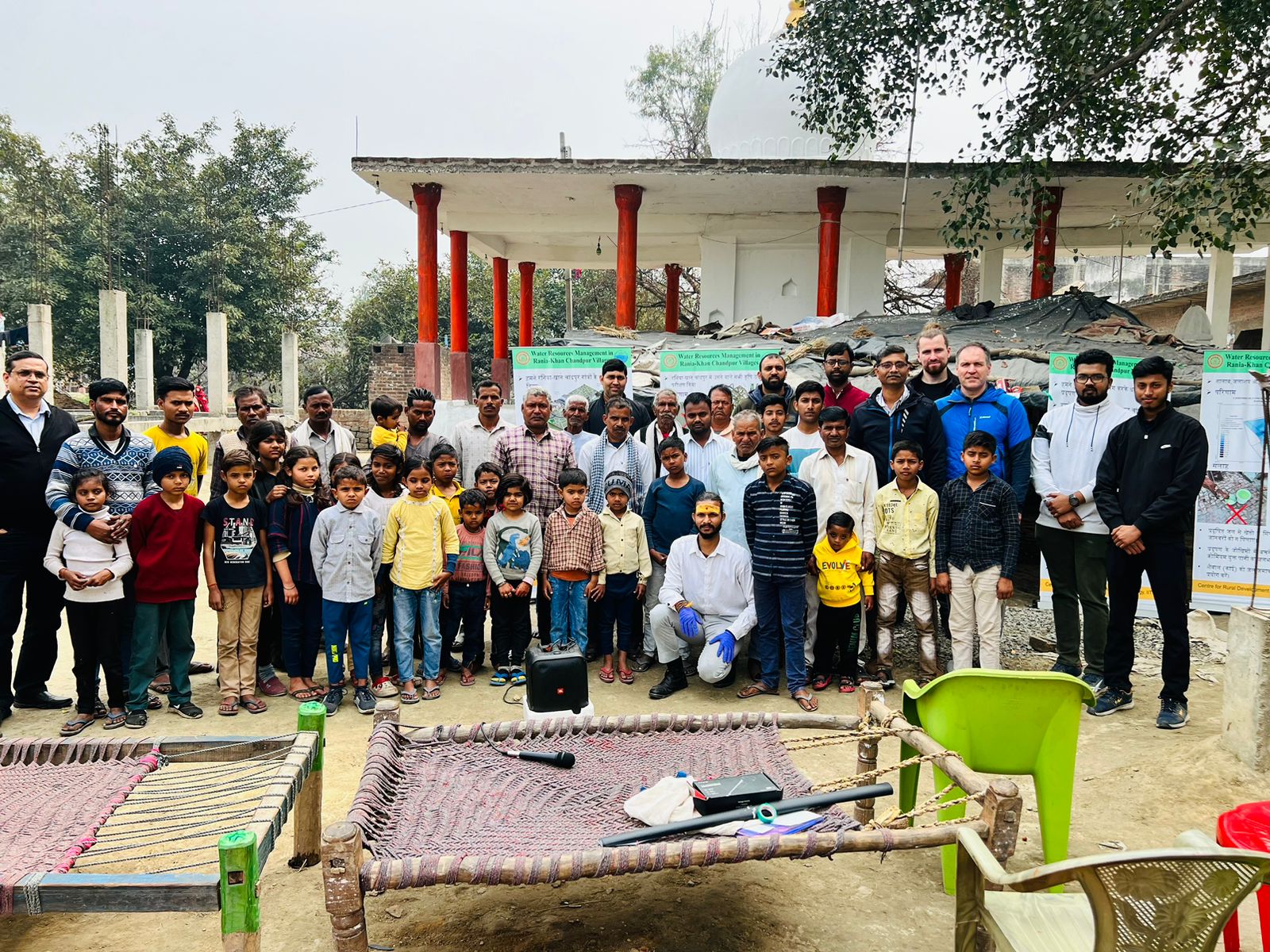Delhi: 15 February 2024 :: Unlocking Solutions: Prof. Ram Chandra Memorial Capacity Building Program on Water Resources Management in Rural Areas in a significant stride towards addressing water resources management challenges in rural areas, the Prof. Ram Chandra Memorial Capacity Building Program commenced on 13th to 15th February 2024, at the Raniya Khan Chandpur chromium contamination site. This program, spearheaded by researchers from the Center for Rural Development and Technology at IIT Delhi, aims to enhance water resource management practices, focusing on the critical aspects of soil and groundwater quality management.
For the past two years, researchers have diligently investigated chromium contamination at the site, devising remedial measures to rehabilitate the highly contaminated soil and groundwater system. The event welcomed esteemed guests, including Prof. Thorsten Schafer and Dr. Marcus Bohm from Germany, along with Prof. Gopal Krishan Darbha, to deliberate on the implications of chromium contamination.
Dr. Pankaj Gupta and his team from IIT Delhi, comprising Vaibhav Vivek and Armender, presented their research findings to the local residents. They showcased remediation designs aimed at restoring the contaminated soil and groundwater system to its natural state. The event was expertly moderated by Kavi Nishant Bhardwaj Rajput from Dharti Foundation, in the esteemed presence of Dr. Swatantra Dubey, Dr. Bhupendra Singh, and Atul.
The program witnessed an overwhelming response, with over a hundred villagers actively participating and contributing valuable insights for consideration in future endeavors. Their engagement underscored the importance of community involvement in tackling environmental challenges and fostering sustainable solutions.
The overarching objective of the Prof. Ram Chandra Memorial Capacity Building Program is to empower local communities with the knowledge and skills necessary to manage water resources effectively. By bridging the gap between research and practice, the program aims to create a synergy that fosters meaningful change and long- term sustainability.
Through collaborative efforts and knowledge-sharing initiatives, the program seeks to:
Enhance Awareness: By educating local communities about the impacts of chromium contamination on water resources and the environment, the program aims to raise awareness and instill a sense of responsibility towards safeguarding natural resources.
Promote Capacity Building: Through training workshops, skill development programs, and knowledge exchange sessions, the program endeavors to equip stakeholders with the tools and techniques needed to implement effective water resource management practices.
Facilitate Community: Participation: Recognizing the pivotal role of community engagement in driving sustainable change, the program prioritizes inclusive decision-making processes that empower local residents to actively contribute to environmental conservation efforts.
Foster Innovation: By fostering a culture of innovation and collaboration, the program encourages the development and adoption of innovative technologies and approaches for mitigating water contamination and promoting ecosystem restoration.
Promote Policy Advocacy: Through advocacy efforts and policy dialogues, the program seeks to influence decision-makers and policymakers to enact policies and regulations that support sustainable water resource management practices at the grassroots level.
In conclusion, the Prof. Ram Chandra Memorial Capacity Building Program represents a pivotal step towards addressing the complex challenges of water resources management in rural areas. By fostering collaboration, empowering communities, and promoting innovation, the program holds the promise of unlocking sustainable solutions that benefit both present and future generations. As we embark on this transformative journey, let us remain committed to nurturing our water resources and preserving the invaluable legacy of Prof. Ram Chandra’s vision for a more sustainable and resilient future.



